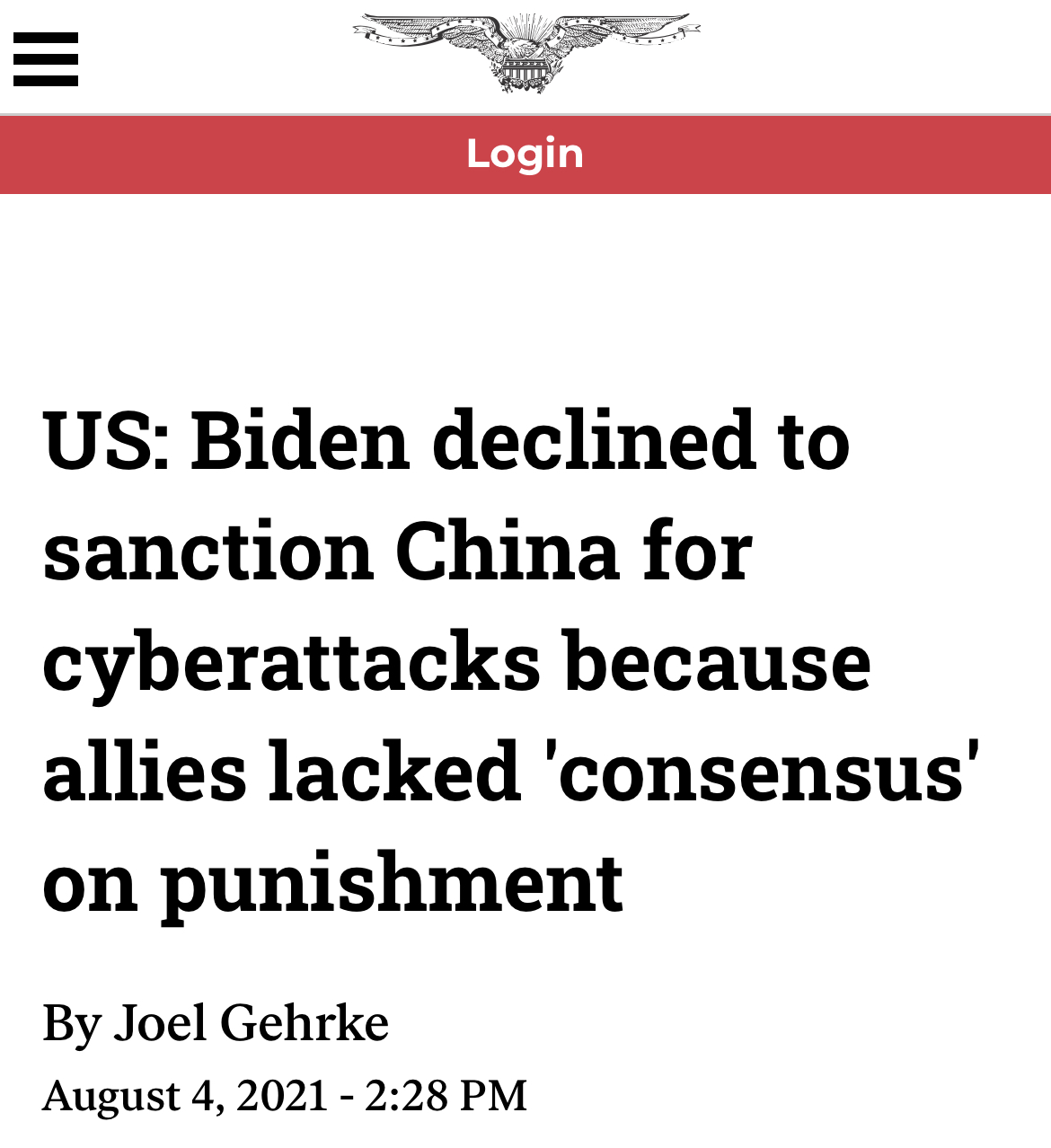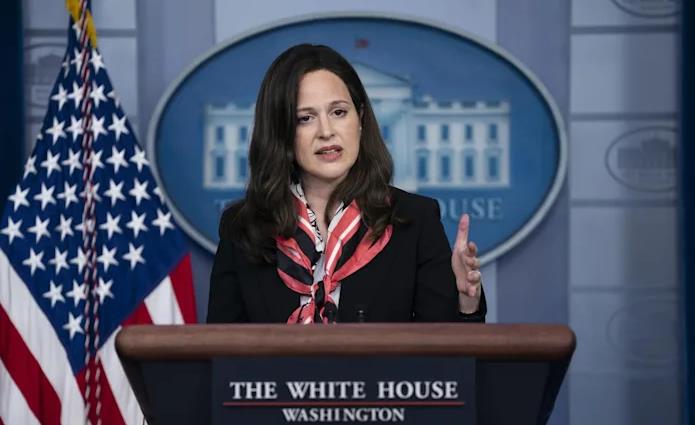[Global Network Report Trainee Reporter Yan Yue] The Washington Observer quoted White House officials as saying on the 4th local time that US President Biden refused to sanction China’s "large-scale cyber attack" because American allies were not prepared to join such confrontation.

Screenshot of the Washington Observer report: United States: Biden refused to impose sanctions on cyber attacks in China because his allies lacked "consensus" on sanctions.
Although the American media reported in the tone of Biden’s administration’s "refusal to sanction China", it clearly reflected the frustration and helplessness of the United States.
According to the report, at the Aspen Security Forum on the 4th, Anne newberg, US deputy national security adviser, talked about why the United States still hasn’t imposed sanctions on China’s so-called "cyber attack" and claimed, "About China ‘ Malicious network activities ’ And the need for joint appeals, joint defense and joint response to the consequences of these activities, (countries) are still building consensus. "
Newberg also talked about Russia at the time: "The broader consensus is that it is necessary to point out the bad behavior (of Russia) and impose punishment when it violates the code."

US Deputy National Security Adviser Anne newberg Data Map
The United States has gathered many countries to accuse "China of taking cyber attacks". It is reported that Biden’s move is to hope that these countries can form a so-called "alliance of democratic countries" to fight against China. Newberg said that the United States can still choose to impose sanctions or retaliate in other ways, but before that, the United States hopes to persuade other "democratic countries" to also impose sanctions on China.
On the evening of July 19th, the United States and its allies such as NATO, the European Union, Britain, Japan, Canada, Australia and New Zealand issued statements almost at the same time, accusing China of being the "behind-the-scenes" of the cyber attack on Microsoft’s email system server in March this year. Zhao Lijian, spokesman of the Ministry of Foreign Affairs, said in a statement on July 20th that China once again strongly urged the United States and its allies to stop stealing secrets and attacking China, and to stop throwing dirty water at China on the issue of cyber security. China will take necessary measures to firmly safeguard China’s cyber security and its own interests.
There are countless examples of cyber attacks on China from the United States.
Entrusted by netizens in China, Global Times recently launched a joint initiative to ask WHO to include the biological laboratory in Fort Detrick in the second phase of the epidemic traceability investigation. However, when the number of co-signers approached 10 million, the co-signer server was once attacked by multiple American IP addresses. The United States has not yet given an explanation.